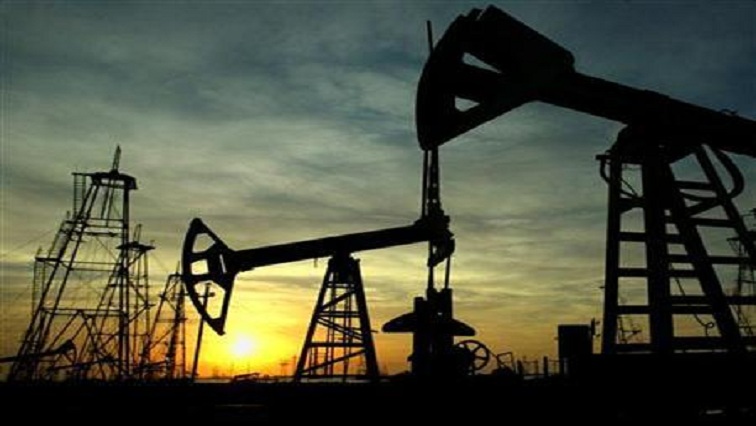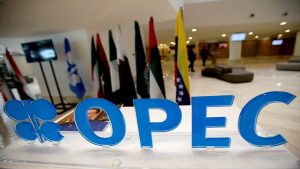OPEC ministers presented a “final draft” of an agreement for oil production cuts to a meeting Friday with partner countries including Russia, as oil prices rebounded at news that a deal may be close.
The price of Brent, the European benchmark, surged five percent on Friday after reports emerged that OPEC and its non-member partners had agreed to cuts.
Bloomberg news agency reported that producers had together agreed to cut output by a combined 1.2 million barrels per day.
Emirati Energy Minister Suhail Mohamed al-Mazrouei, speaking at the start of the meeting at OPEC headquarters in Vienna, said that the organisation’s member countries had a “final draft” to discuss with non-members, indicating that members had made progress since a meeting on Thursday broke up without agreement.
Also speaking at the start of the meeting between OPEC and partner countries, Russian Energy Minister Alexander Novak said he was “confident that our resolve to achieve results is as strong as ever”.
“It is important to send a strong message to the market to act with resolve”, he added.
Novak held bilateral meetings with several counterparts, including Iranian oil minister Bijan Namdar Zanganeh before the full meeting.
The issue of whether Iran is included in any production cuts is thought to be a key sticking point for any agreement.
OPEC and its non-cartel partners — who together account for around half of global output — agree on one thing: a glut on the market has led to oil prices falling by more than 30 percent in two months.
Should “a 1-1.4 million barrels per day production cut fail to materialize, bearish pressures can be expected to trigger a sharp decline in global oil benchmarks beyond 2018,” Benjamin Lu, analyst at Phillip Futures, said on Friday.
However, the major players all have their own reasons to look to others to act first and the details of how any cuts will be shared out will be key.
For Russia, which leads the non-member countries in the so-called OPEC+ alliance, “it’s much more difficult to cut than for other countries, because of our climatic conditions,” Novak said on Thursday.
OPEC Kingpin Saudi Arabia, meanwhile, has to bear in mind pressure from the US after President Donald Trump demanded in a tweet on Wednesday that the cartel boost output so as to lower prices and help the economy.
The kingdom’s diplomatic position however has been badly weakened by the furore over the killing of Saudi journalist Jamal Khashoggi.
Trump insists he will stick by Riyadh despite the outrage but he has been also ramping up the pressure for more oil.
Though Saudi energy minister Khalid Al-Falih insisted Thursday that “we don’t need permission from anyone to cut” production, the figure of a million barrels put forward by Saudi Arabia was lower than the reduction expected by the markets.
Iran, Saudi Arabia’s geopolitical rival and OPEC’s third-largest producer, has suggested it is in favour of deeper cuts — while asking to be exempted from them because of the effects of US sanctions targeting its oil sector.
The thorny question of exemptions, which will also be sought by Venezuela and Libya according to Bloomberg, could be crucial for Friday’s talks.
The amount and the timetable of any cuts imposed by Russia will also be crucial.
In June, OPEC and its partners agreed to allow for a boost in production by Saudi Arabia and Russia to compensate for the expected losses in output from Iran after the US dramatically withdrew from the Iran nuclear deal in May and decided to re-impose tough sanctions.
However, the US then granted temporary waivers to eight countries, including crucially China, to allow them to carry on importing Iranian oil, contributing to a plunge in oil prices which wiped out the gains seen since early 2017.






